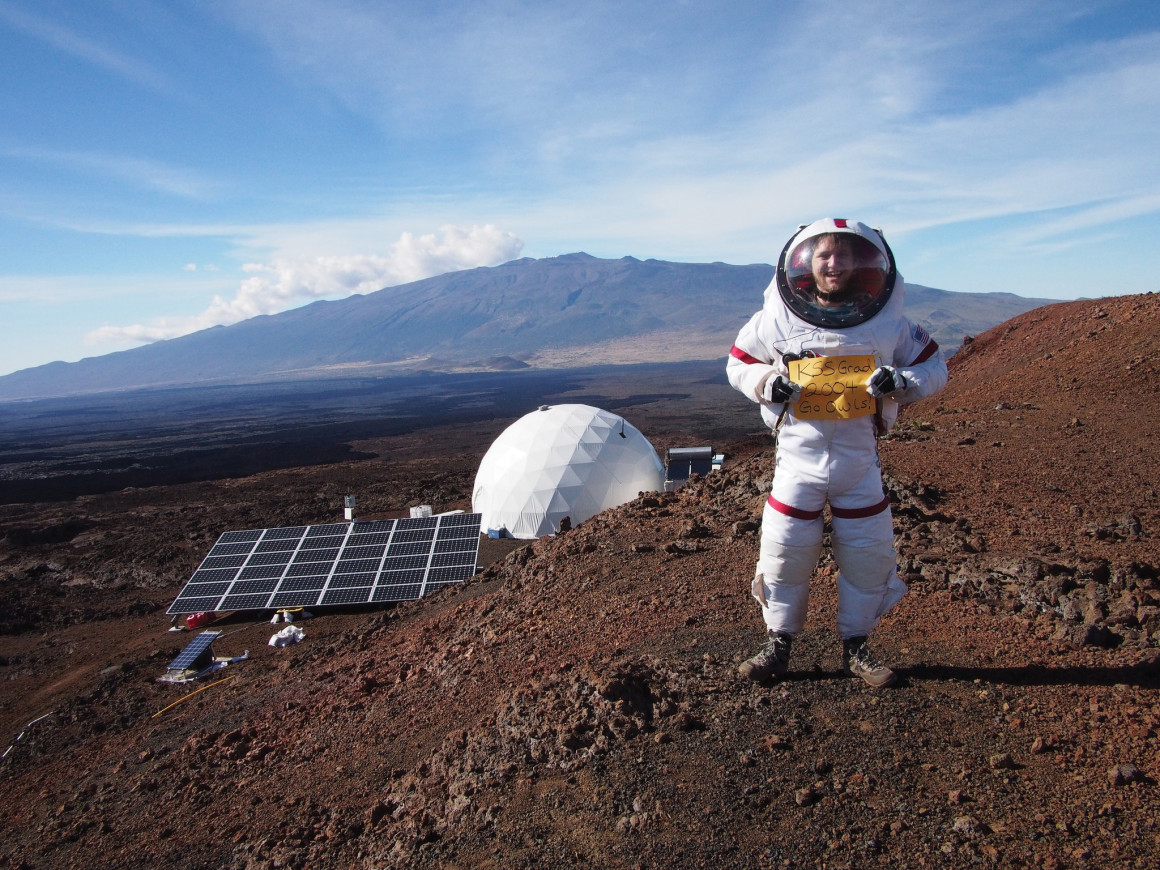
Canadian scientist talks space exploration, Matt Damon and real life on fake Mars
By Fabian Mayer, March 29 2016 —
In 2014, Ross Lockwood was finishing up his PhD in condensed matter physics at the University of Alberta. He was also living on fake Mars.
Lockwood was part of a six-member team taking part in a HI-SEAS experiment. For four months the group lived in a NASA-built Mars simulator on the slopes of the Mauna Loa volcano in Hawaii.
Lockwood will be at the University of Calgary on March 31 to give a talk called ‘Real Life on Fake Mars.’
The Gauntlet: What was the experiment that you participated in?
Ross Lockwood: HI-SEAS stands for the Hawaii Space Exploration Analog and Simulation. It’s essentially a habitat that’s been built to simulate a mission to Mars. A crew of six of us went and lived inside this dome for 120 days. The purpose of the experiment was to assess the psychological impact of long-duration space missions and isolation on the crew members.
G: What was it like being isolated for that long?
Lockwood: It’s a bit strange being isolated for so long. Of course we have to pretend like we’re living on Mars even though we’re not. When we’re inside the dome we’re eating all dehydrated foods and we’re conducting scientific experiments. Then when we go outside we need to be wearing space suit analogues, so all in all the entire experience was very strange. For 120 days you are
essentially pretending to be an astronaut living on another planet.
When it comes to the isolation it’s a bit odd because you feel very lonely being away from your family and friends and the rest of humanity. But on the other hand, you’ve never been closer to your five other crewmates. So you get this deep sense of loneliness and isolation and then you get this deep sense of confinement and conflict.
G: What was day-to-day life like during the experiment?
Lockwood: It would be kind of like a normal day. You get up in the morning, you brew some coffee, you hydrate some milk and make yourself a bowl of cereal. Our mission support team communicated to us through a website and they would be assigning us tasks out in the field like ‘go out and find this kind of rock, bring it back and measure its density.’
This was all done without any pre-planning. We didn’t know what to expect going into this, so we would have to come up with solutions to these problems on the fly, which made it very
challenging.
Once that work was done for the evening we would get together as a group and participate in games, sometimes watch TV shows and movies so all in all it was I guess what you’d expect from a mission to another planet in that you have to account for down time, you have to rest — that kind of thing. It was just about what I expected a Mars mission would be like.
G: Would you ever go to Mars if the opportunity arose?
Lockwood: I would not be ok with the one-way trip to Mars. I would certainly want to be able to return to Earth and my family and friends. That’s a function of just being in Hawaii for those 120 days. As much as people say they’d love to live on a different planet, living on a different planet for the rest of my life does not appeal to me. So it would have to be a return mission.
G: What’s it like being played by Matt Damon in a movie?
Lockwood: When I was actually living [in the experiment] we read The Martian. It was a pretty new book at the time and I thought, ‘man this book is describing exactly the experience that we’re having.’ We had all sorts of similar problems to the character. We had power failures, we had systems failures, we had to come up with clever solutions to things on the go. I really like The Martian. I think it does represent very well the expectation of an astronaut living on another planet, especially alone. So I give that movie two thumbs up.
